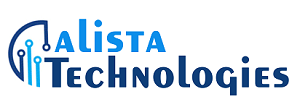
Healthcare Data Integration: Best Practices and Top Software Solutions
In the healthcare industry, the integration of data across various systems is pivotal for delivering quality patient care and improving operational efficiency. This article delves into the best practices and software solutions for healthcare data integration. We will explore the challenges faced in managing healthcare data, strategies to overcome these challenges, and the impact of effective data integration. Insights from HIPAA Compliant Database Software and Best Practices for Healthcare Data Integration guide this exploration.
Understanding Healthcare Data Integration
The Challenge of Data Management in Healthcare
- Diverse Data Sources: Healthcare data comes from various sources, including electronic health records (EHRs), lab systems, and imaging systems.
- Data Silos: Often, data exists in silos, making it challenging to access and analyze collectively.
Importance of Data Integration
- Holistic Patient View: Integration allows for a comprehensive view of patient health, enhancing diagnosis and treatment.
- Operational Efficiency: Unified data improves operational aspects, such as resource allocation and patient flow management.
Best Practices for Healthcare Data Integration
Ensuring Data Quality
- Accuracy and Consistency: Ensuring data accuracy and consistency is critical for reliable integration.
- Data Cleansing: Regular data cleansing to remove duplicates and correct errors is essential.
Compliance and Security
- HIPAA Compliance: Adhering to HIPAA regulations to protect patient privacy during data integration is non-negotiable.
- Secure Data Exchange: Implement secure protocols for data exchange between systems.
Interoperability
- Standard Data Formats: Use standard data formats like HL7 or FHIR to ensure interoperability between different systems.
- API Integration: Employing APIs facilitates seamless integration of disparate healthcare systems.
Top Software Solutions for Healthcare Data Integration
Features of Effective Integration Software
- Robust Integration Capabilities: The software should support integration with a wide range of healthcare systems.
- User-friendly Interface: An intuitive interface is crucial for efficient data management by healthcare staff.
Examples of Top Solutions
- HIPAA Compliant Database Software: Platforms like HIPAA Compliant Database Software offer secure, compliant solutions for healthcare data integration.
- Customizable Solutions: Some platforms provide customizable solutions that can be tailored to specific healthcare workflows.
The Impact of Effective Data Integration
On Patient Care
- Improved Patient Outcomes: Accurate and complete data improves patient diagnosis and treatment.
- Personalized Care: Integration facilitates personalized healthcare plans based on comprehensive data analysis.
On Operational Efficiency
- Streamlined Processes: Efficient data flow leads to streamlined administrative and clinical processes.
- Informed Decision-making: Integrated data provides valuable insights for informed decision-making at both clinical and administrative levels.
Healthcare data integration is a complex but essential component of modern healthcare. Best practices in data management, compliance, interoperability, and the use of top software solutions play a crucial role in achieving effective integration. By adhering to these practices and employing solutions like HIPAA Compliant Database Software, healthcare providers can overcome the challenges of data silos, ensuring improved patient care and operational efficiency. The resources at Best Practices for Healthcare Data Integration offer additional insights into optimizing healthcare data integration strategies.






